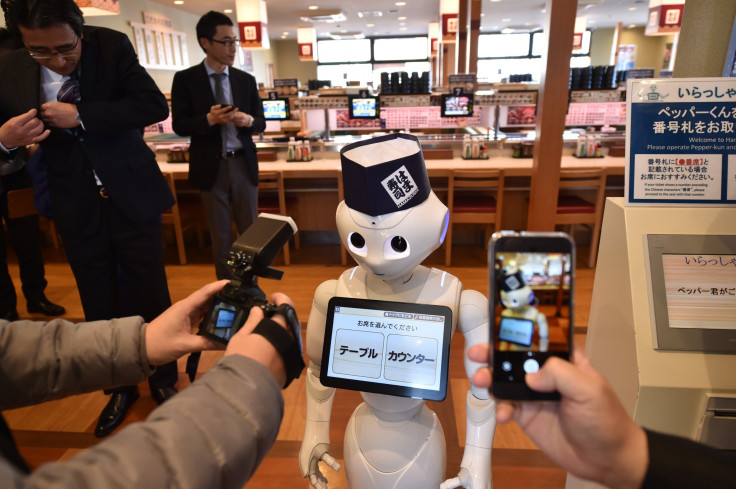Fabio, The Pepper Robot, Fired For 'Incompetence' At Edinburgh Store

The advancement in technology heralds a future world dominated by artificial intelligence with robots taking over many of the jobs currently being done by humans.
However, with the firing of Britain’s first cyborg shop assistant for “incompetence,” it seems unlikely that the day is anywhere in the near future.
Fabio, the Pepper robot, who was deployed as a retail assistant at the upmarket store Margiotta in Edinburgh, Scotland, was let go after only a week at the job after it was found that the robot was confusing the patrons, who preferred assistance from its human colleagues.
The robot was an experiment run by Heriot-Watt University for the BBC’s Six Robots & US. It was programmed with directions to hundreds of items in the company’s flagship Edinburgh store.
It also had charming tricks up its sleeve, including "hello gorgeous" greeting, playful high fives, jokes, and offers of hugs.
“We thought a robot was a great addition to show the customers that we are always wanting to do something new and exciting,” said Elena Margiotta, who runs the chain of shops with father Franco and sister Luisa.
However, Fabio’s novelty and initial charm waned on customers after it gave vague answers to their requests or failed to understand them due to the ambient noise.
To questions like where to find the beer or the steaks, it gave generic answers like “it’s in the alcohol section” or “in the fridge.” It had no idea where the alcohol section or the fridge was.
The dismal performance led to Fabio being demoted and relegated to an aisle where he was reduced to offering samples of pulled pork to customers.
Even there Fabio failed to shine. While human staff managed to tempt 12 customers to try the meat every 15 minutes, the robot only managed to two.
When the owners realized the robot was putting off customers, they pulled the plug on him.
“Unfortunately Fabio didn’t perform as well as we had hoped,” Margiotta said. “People seemed to be actually avoiding him.
“Conversations didn't always go well. An issue we had was the movement limitations of the robot. It was not able to move around the shop and direct customers to the items they were looking for.”
The director of the Interaction Lab at Heriot-Watt, Dr. Oliver Lemon, said he was surprised by the reactions elicited by the bot.
"One of the things we didn’t expect was the people working in the shop became quite attached to it. It was good in a way because we thought the opposite would happen and they would feel threatened by it because it was competing for their job," he added.
Though Fabio may not have made the cut, the number of companies trying out Pepper robots, manufactured by the Japanese company SoftBank, is growing by the day.
Pizza Hut along with MasterCard announced in 2016 that they will be deploying the robots for taking orders and giving information to customers across Asia.
Apart from that, SoftBank says there are already over 10,000 Pepper robots in use around the world, including on cruise ships and homes across Japan.
© Copyright IBTimes 2024. All rights reserved.





















